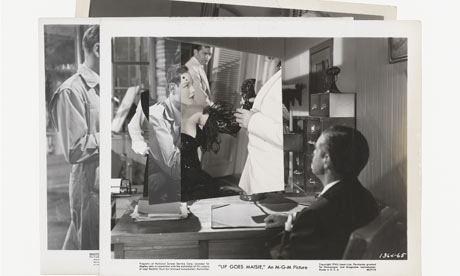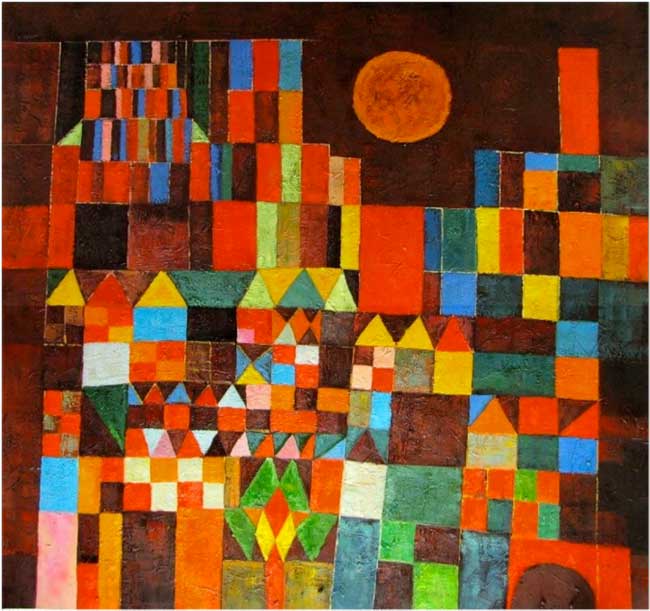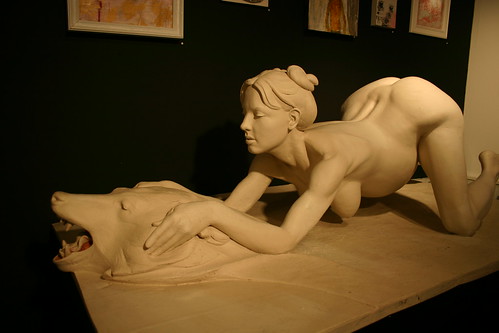However, guess what, In Shanghai, I think I have never feel this free than any other cities that I have been in.
I still remember how my friend told me that he was treated in UK boarder by ruleless custom who treats him as a criminal asking my reason for coming to UK. Although I was quite lucky in this respect, but I couldn't help wonder the necessary of assuming every human being as criminal.
Also as an experiment that I did before in London in front of the Gherkin. A security guard came and talk to me although he was kind, but it was well obvious that he is uncomfortable about my presence in front of the building. London, the city with the highest number of CCTVs while celebrating its own cultural diversities, a perfect representation of post modernism, everyone can find its corner. The movie 'Red Road' also shows the aspect of UK security system.
I often thought about the point of living in a democratic city under supervision by a big brother. This is no longer a new vocabulary for western society, you are constantly being watched, later on the term was popularised by British reality shows - Big brother shows. However, when people thought they can remote control the actors by their Tweeter and Voting, they have no idea that they are the one who are being controlled. They behave according to the designed climax from the show, and then they make choices (They thought they make their own choices, but who made the options? ) and the statistic were gathered by the biggest liar - Media.
In Shanghai, there are scanners and policemen at every subway station to look at personal belongings in the bag. The policemen would wave their hands to ask passengers to put their bags on conveyor belt. The funny thing is that people just walked by and pay absolute no attention to them.
Traffic in Shanghai is horrific, a friend picked me up at a crossroad for lunch, after we met, he just got off from his bicycle and walked in the middle of the road. "Aren't we have to move to the sidewalk?" I ask, he said:"It's ok here." Indeed, you can definitely see the drivers and cyclists have any respect towards traffic laws. Every direction at the same time, there is no stop and then go. It is a tactic way of life, you learn with every step you take, the chances are everywhere, there is no risk management or prevention that works in this state. You will never know when or where a car might just go out and hit you, and that is the majority of time.
Back to the reason why I found myself sometimes freer here in Shanghai than Taipei, I felt that it is the awareness makes me feel I am freer, I know the policemen are watching me. I know what might happen when I violet the rules, whilst in other city, at least the majority people weren't aware that they were actually being constantly recording by an invisible eyes. Not to speak for the chinese people though, I have no idea whether or not they know anything at all. It is not a racist comment, but it seems that people that I met at the stores, streets, friends, bars aren't really knowing the point of asking why.
I still keep comparing the two different governments between Taipei and China, however I found that although I can vote for my president every four years, why am I still feel so powerless, alienated and frustrated over the nuclear plantation building, real estate brokers in Shida district... etc. just like the Chinese citizen?
Also as an experiment that I did before in London in front of the Gherkin. A security guard came and talk to me although he was kind, but it was well obvious that he is uncomfortable about my presence in front of the building. London, the city with the highest number of CCTVs while celebrating its own cultural diversities, a perfect representation of post modernism, everyone can find its corner. The movie 'Red Road' also shows the aspect of UK security system.
 |
| Red Road by Andrea Arnold |
I often thought about the point of living in a democratic city under supervision by a big brother. This is no longer a new vocabulary for western society, you are constantly being watched, later on the term was popularised by British reality shows - Big brother shows. However, when people thought they can remote control the actors by their Tweeter and Voting, they have no idea that they are the one who are being controlled. They behave according to the designed climax from the show, and then they make choices (They thought they make their own choices, but who made the options? ) and the statistic were gathered by the biggest liar - Media.
In Shanghai, there are scanners and policemen at every subway station to look at personal belongings in the bag. The policemen would wave their hands to ask passengers to put their bags on conveyor belt. The funny thing is that people just walked by and pay absolute no attention to them.
Traffic in Shanghai is horrific, a friend picked me up at a crossroad for lunch, after we met, he just got off from his bicycle and walked in the middle of the road. "Aren't we have to move to the sidewalk?" I ask, he said:"It's ok here." Indeed, you can definitely see the drivers and cyclists have any respect towards traffic laws. Every direction at the same time, there is no stop and then go. It is a tactic way of life, you learn with every step you take, the chances are everywhere, there is no risk management or prevention that works in this state. You will never know when or where a car might just go out and hit you, and that is the majority of time.
Back to the reason why I found myself sometimes freer here in Shanghai than Taipei, I felt that it is the awareness makes me feel I am freer, I know the policemen are watching me. I know what might happen when I violet the rules, whilst in other city, at least the majority people weren't aware that they were actually being constantly recording by an invisible eyes. Not to speak for the chinese people though, I have no idea whether or not they know anything at all. It is not a racist comment, but it seems that people that I met at the stores, streets, friends, bars aren't really knowing the point of asking why.
I still keep comparing the two different governments between Taipei and China, however I found that although I can vote for my president every four years, why am I still feel so powerless, alienated and frustrated over the nuclear plantation building, real estate brokers in Shida district... etc. just like the Chinese citizen?



.jpg)










































